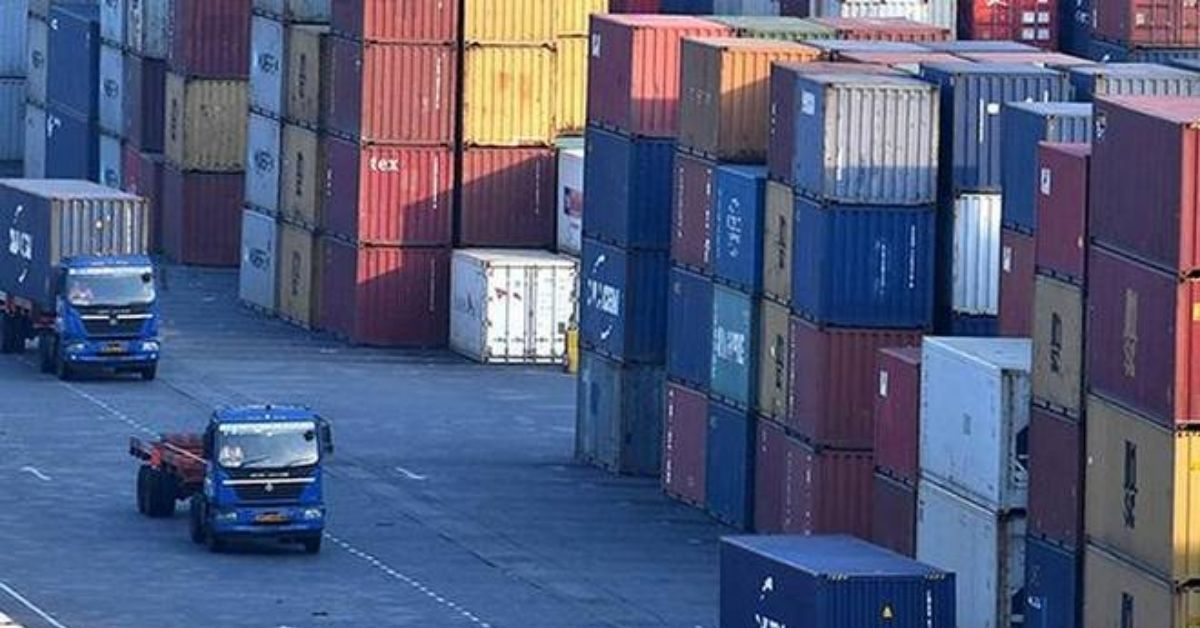India, the fastest growing major economy in the world, is seeing ever greater volumes of large boxships visiting its shores, necessitating the construction of far larger ports.
The International Monetary Fund forecasts India’s GDP to grow 6.8% this year, while exports are accelerating at a rapid clip. The nation managed $422bn in exports last year, beating the government’s $400bn target. The share of machinery and electricals in India’s exports overtook the legacy textiles and apparel sectors in 2022 with shares of 9.9% and 9.7% respectively.
“As the global supply chain struggles to place all its bets on China, there is rising confidence that India could become one of the more resilient alternatives to China in the global supply chain,” stated a new report from Container xChange, an online box booking platform.
According to International Trade Administration data, the trade between India and the US reached a record level of $119.42bn in the 2021-2022 fiscal year, which is an increase from $80.51bn in the previous year. This trade makes up 11.5% of India’s total global trade, and as a result, the US has surpassed China to become India’s primary trading partner.
New research from S&P Global Market Intelligence suggests India’s trade economy is set for rapid growth in 2023, aided by trade activity as the country diversifies its manufacturing base.
“The active use of trade policy measures under the ‘Make in India’ program is complimented by in-market, for-market manufacturing strategies and the benefit of reshoring away from China,” S&P Global Market Intelligence noted.
Box shipping analysts at Alphaliner note that the biggest tonnage shift in 2022, amid tepid times for the main east-west tradelanes, was to Middle East and India related services, where 320,600 teu of fleet capacity was added last year.
“Indian ports are now handling an increasing number of 13,000 – 15,000 teu ships which have been replaced by megamax vessels on the East West trades,” Alphaliner noted in its most recent weekly report.
The growing interest in Indian traffic was reflected recently by sister companies COSCO and OOCL launching a Southeast Asia – India – US east coast service in December after closing a China – Vietnam – US east coast loop.
Global liners are retrenching more resources and staff to India. Germany’s Hapag-Lloyd, for instance, has just taken an ownership stake in one of India’s leading private terminal and inland transport service providers, J M Baxi Ports & Logistics.
The growing box volumes are seeing more box terminal developments across the sub-continent. For example, Splash reported earlier this week on plans to develop a $5bn container transhipment terminal in the Bay of Bengal.
“India is uniquely placed naturally to develop into a transhipment hub. With the right investments and focus, the country can be fully equipped to position itself as an important cog in the wheel of the global supply chain,” said Christian Roeloffs, CEO of Container xChange.





